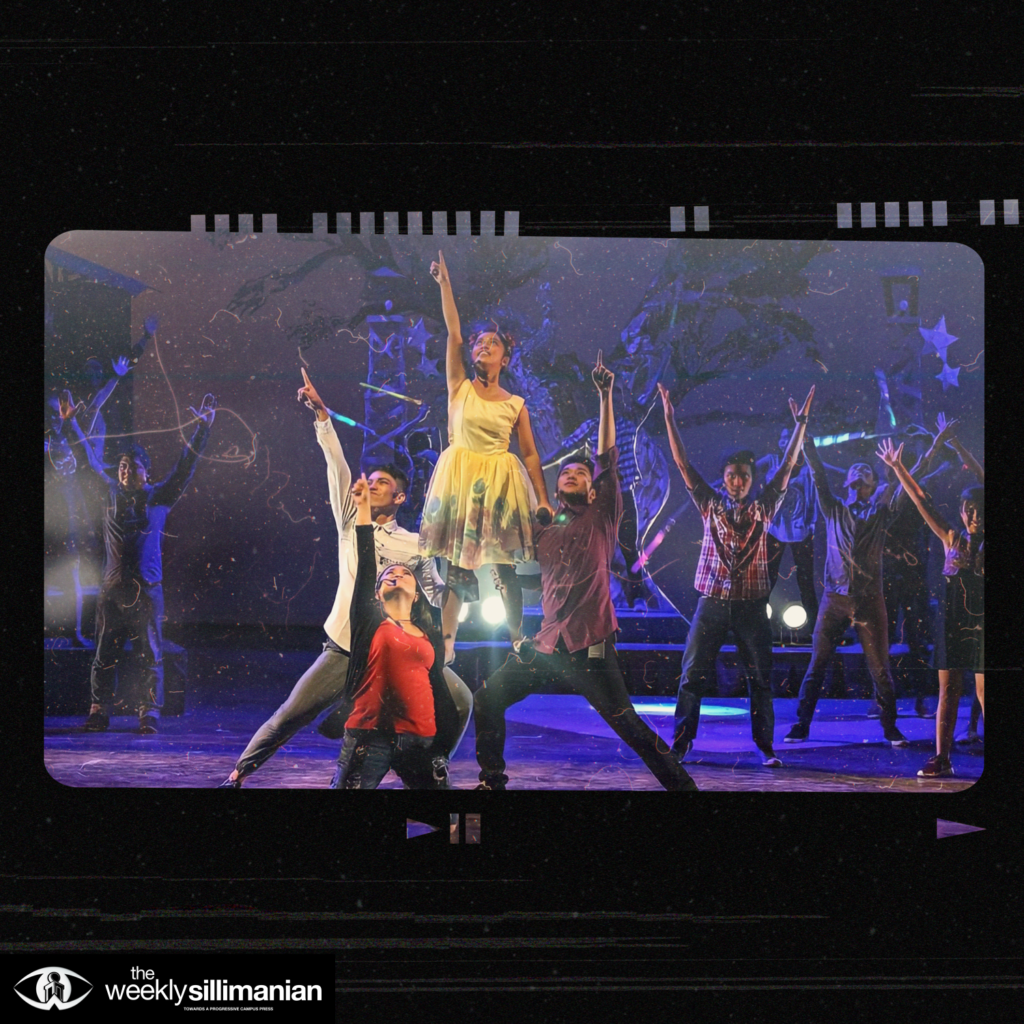by Zarelle Glen Dorothy A. Villanzana | March 31, 2022
The Philippine history of theatre dates way back to pre-colonial times in the form of rituals, games, virtual jousts, or songs and dances in praise of the gods. As time moved forward, so came its evolution. Precolonial methods were abandoned as the Spaniards came and captured our hearts and imaginations through komedyas and sarsuelas.
Then, the Americans arrived and the bodabil was unearthed as Filipinos first produced it to entertain the American soldiers residing in Manila. Then came the introduction of Broadway in 1930, which was learned through westernized education for private schools and privileged children.
From the rituals, comedies, zarzuelas, vaudevilles to Broadway, the colonial influence was great for the flourishing of the Philippine theatrical arts. Modern forms transitioned to our contemporary methods, and with the existence of COVID-19, a new era of theatre has been continuously explored.

While some artists are capable of creating freely from the comfort of their homes, some others have struggled to find the connection they need for the proper expression of their art. It has been two years of this already. How has this pandemic actually affected the art of theatre?
Enzo Miguel Pastrano shared several experiences as a Speech and Theatre major at Silliman University. Once, he shared, he was filming a monologue for his professor, and it was not the best experience as it lacked the proper environment for him to perform at his best. This could be the most common setback apparent to other theatre artists as well. A long history of performing for a crowd was how theatre emerged, and deducting the variable of an audience perhaps makes it harder for them to adjust. But since two years have passed, they have learned to adapt, but not without challenges every step of the way.
As of the moment, Pastrano is directing a play for his senior thesis, which is entitled Adios, Papa. Since constant meetups are discouraged, Zoom meetings are his lifeline for rehearsals. Setbacks are apparent as poor signals create static in the actors’ voices or how the slow internet connection kicks them out of the meeting while they recite their parts. Still, he decided that at least once a week on a Saturday, he would make efficient use of the available time his actors had to rehearse everything physically, without any digital disturbance. Since no live performances can be made, he, among other theatre groups in this pandemic, will instead resort to having a film as the end product.
Since Pastrano’s thesis will be a film, a common question to emerge would be whether this might hinder the true potential that a live theatrical performance brings.
Mario Lendel Roble Barinque, a filmmaker and fourth-year Creative Writing major says otherwise: “I don’t think film does that. And I am not saying that because of my background as a filmmaker.” He continues to say that theatre and film have a thin line difference, wherein “one is recorded and one is live.” He mentions that the process, performance, and even the script are different for each, and in an attempt to define both, he says, “The art of theatre/film is the art of storytelling by turning words into something you can really see. The art of theatre/film is the art of directing your audience on what to see, hear, and feel. Like any form of art, it’s like the art of feeling like a god – being in control but at the same time not, because even if your creation is something from your mind and soul, you also have to consider that the moment it comes out of you, it will have a life of its own that is beyond your control.”
Although both students are taking up different courses, the two share the same passion for theatre, as the love blossomed inside them individually at very young ages — one through the influence of an uncle bringing him to his local theater to watch plays, and the other through his grandfather’s encouragement to do storytelling.
Despite how the pandemic has greatly altered the situation for the theatre community, true passion has enabled these students to persevere and continue telling stories, especially in shedding light on the issues the Philippines is facing. They also both agreed that theatre is not limited only to those who act, Barinque said, “If you enjoy reading or watching movies, theatre is something for you to consider trying, either as an audience or one of the creators. The process is something worth experiencing. The knowledge you get is something beyond theory.”
Although Broadway may be the most famous among theatre forms, Barinque encouraged others to check out Asian theaters, as well as our ethnic theaters — ones that make up the soul of our own culture.


